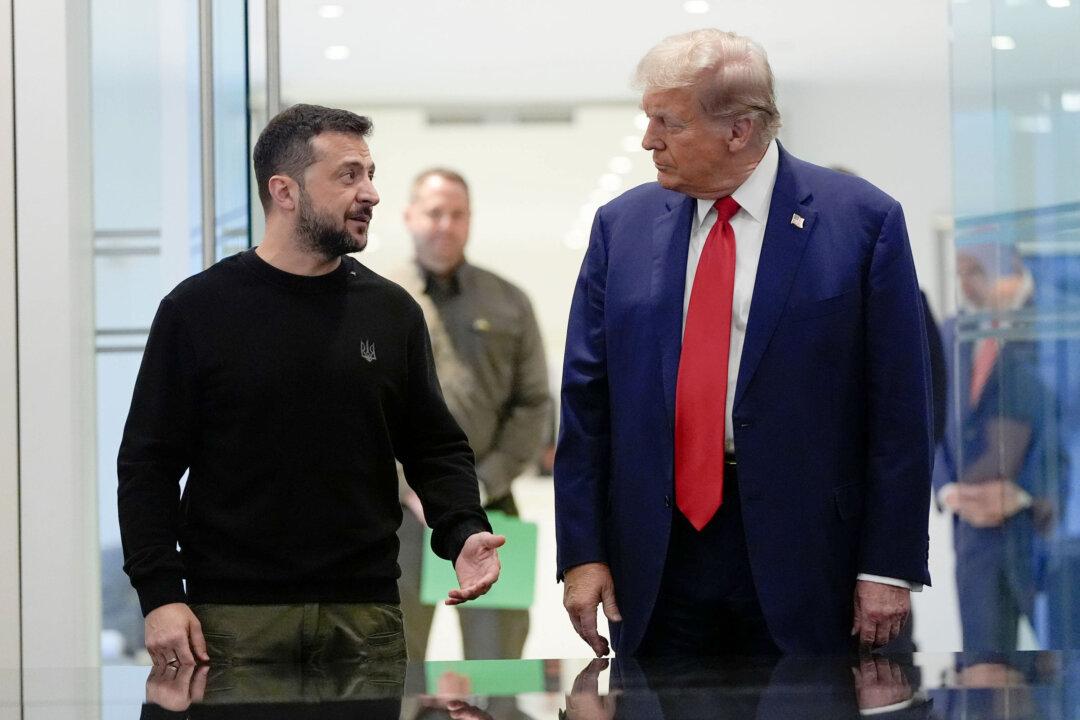Student societies are “quietly” no-platforming suitable speakers out of fears of a backlash, according to a new report.
British universities, historically known for having long traditions of hosting guests to deliver speeches and engage in debates, are preemptively canceling guests.
The research, published by the Higher Education Policy Institute (HEPI) think tank, looked at the role of student societies and the speakers they invite, or sometimes do not invite.
“Very often what you don’t hear is just as important as what you do hear about,” author and philosopher Frank Furedi told The Epoch Times. Furedi has long argued that freedom of speech is our most fundamental freedom and that a “cultural Taliban” is taking over campuses.
HEPI was set up by a member of the Liberal Democrats in 2002 to influence the “higher education debate with evidence.”

Denied a Platform
Events around no-platforming, a form of student boycott where a person or organisation is denied a platform to speak on campuses, are more well-known and documented.However, “quiet” no-platforming, a type of behind-the-scenes self-censorship vetting process, was more common. This was where students decided not to invite otherwise suitable speakers for their debates because of their views or past comments and were, therefore, put off from inviting them because of the risk of controversy.
HEPI said that debating unions are among the UK’s oldest protectors of free speech and noted that Cambridge and Oxford Unions, established in 1815 and 1823 respectively, are well known and have a long tradition of hosting guests to deliver speeches and engage in debates.
Members are increasingly more concerned about their careers and worried about being attacked by the student press, HEPI said. Some indicated the need to avoid topics that were too “personal” and could cause harm.

Speakers quietly no-platformed include Scottish MP Alex Salmond, the actor Liam Neeson, the comedian Harry Enfield, the former Prime Minister Tony Blair, and Mail on Sunday journalist Peter Hitchens.
Some publications have reported that Enfield was “quietly no-platformed” by the Oxford Union debating society.
A spokesman from the Oxford Union told The Epoch Times by email that he had “reviewed our records and [can] find no such evidence to verify the content of the ’student interviews’ referred to within; such allegations go against our policy of ‘host and challenge.'”
“We acknowledge that certain speakers may hold views that are regarded by some as unacceptable but nonetheless believe that it is more important to debate an issue in full rather than shy away from a difficult subject or to silence certain voices. As per our Guest Speaker Invitation Policy, we only host speakers who agree to be challenged in the context of a debate or an interactive discussion,” he added.
Report author Josh Freeman said, “How are students supposed to learn or decide what they believe if they are not even exposed to the full range of mainstream ideas?”
Legislation
The report also argues that upcoming free speech legislation at universities could make things worse.However, HEPI said that the most common student response to controversy is not more free speech, but more caution.
“Students scared of legal action might therefore host more safe options and fewer alternative perspectives. If so, the Bill may make it harder, not easier, to host the best advocates and debate the most critical issues on campus,” it said.
Furedi, emeritus professor of sociology at the University of Kent, told The Epoch Times that this shows there’s a “very risk-averse culture that has been institutionalised.”
“People who actually support limiting freedom of expression at universities use the whole language of risk management as a way of implementing their policies,” he said.
‘Cultural Taliban’
On upcoming legislation, Furedi said he doesn’t think governments can provide the solution.“It’s a cultural pressure. Whatever the government does, the universities will get around it. It is because they are so institutionally committed to this way of being, that the key thing is to challenge the culture more aggressively, rather than imagining that just because you are going to pass a bill is going to change everything,” he said.
“It seems like these are just bureaucratic procedures, but they are metaphorically ‘beheading people’ from expressing themselves and promoting a culture that just silences people from expressing their views in accordance with their standpoints,” he told The Epoch Times.





